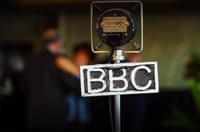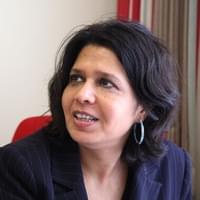
The Government must not neglect our soft power status
Just as diplomacy helps to de-escalate tension and avoid conflict, 'soft power' also has a valuable role to play, both in promoting understanding, sharing knowledge and developing international bonds between nations. While admittedly less tangible, soft power has just as important a role to play, argues John Baron MP.
In today's information age, winning the 'narrative' is just as important as winning any conflict – perhaps more so. Yet, at a time when the messaging environment is more competitive than ever, we have been reducing our resourcing and capabilities. Despite our strong national brand and powerful institutions, such as the British Council and the BBC World Service, our 'soft power' is being subjected to severe financial pressures. These short-term savings do not bode well for our long-term ability to influence global opinion, particularly when other countries are investing in their capabilities.
Soft power has always had to work hard to be taken as seriously as traditional hard power, not least because as a concept it is abstract and intangible. Often defined as the art of persuading people to 'want what you want', it can give a country the ability to inform global opinion, and to shape and frame the debate on important issues.
There are said to be three primary sources of soft power: culture, political values and foreign policy. Culture in the sense of how much a country's cultural output is valued by others; political values as the extent to which a country's institutions uphold desirable values like justice, probity and civil liberties; and foreign policy – whether others believe a country is felt to be a force for good, or not.
Britain's soft power strength comes from many sources. Our strong civil society, long history of stable government, and high levels of religious and social tolerance are points in our favour, as is the near-universal usage of the English language as the medium of international commerce, education, culture and diplomacy. This also enables us to showcase our culture in a readily accessible way – it is estimated that half of the world's schoolchildren study Shakespeare.
More formally, the British Council has acted as our principle cultural relations institution for over 80 years. Working in over 100 countries, each year it interacts face-to-face with over 20 million people, and reaches over 500 million online. The success of its approach can be assessed by the enthusiastic adoption of the idea by other countries – hence the foundation of Germany's Goethe Institute, Spain's Instituto Cervantes and Russia's Russkiy Mir Foundation. The Chinese Government has established over 500 Confucius institutes in 140 countries since 2004 alone, with the intention of founding 1,000 by 2020.
Yet, despite this, the British Council's funding from Government is decreasing, with the annual grant for non-ODA countries falling to zero by 2020. After an already long period of cost-cutting and efficiency savings, this will cut into the bone of the institution's operations. The New York office is closing, as are smaller offices across the developed world. 50% cuts to its work in countries such as Germany, Russia and the United States are on the cards.
Some of the Council's funding shortfall can be made up by increasing commercial activity, but any pound lost in grant has to be made up by a pound of profit and a multiple of revenue. When grant reductions are in the millions, the scale of the challenge is apparent. Moreover, over-commercialisation of the British Council risks tarnishing its brand, hard-won reputation, and raison d'être – it is far more than just an English language school.
The BBC World Service is another key soft power resource but, despite reaching an estimated 246 million people each week, is also under pressure. Badly touched by the 2010 spending review – it lost around 8% of its core budget between 2010-2014 – only pressure from MPs mollified the scale of the cuts and allowed services such as BBC Hindi's shortwave radio service (weekly audience: 10 million) to continue. Moving the World Service's funding from the FCO to the BBC also potentially exposes it to commercial pressures – in the long-term the BBC may well be less happy to make a loss on foreign language news broadcasting.
There are some signs that the Government, after years of budget reductions, recognises the value of the World Service. It announced investment of £34 million in 2016/17, with £85 million each year thereafter until 2020. This allowed the World Service to boast its 'biggest expansion since the 1940s', with services in 11 new languages opening in 2017.
However, any additional Government funding for the Service after 2020 is up for discussion, with key decisions being made later this year. Given the importance of soft power – as with the British Council, other countries have rushed to found their own English-language news services – it would be preferable for famine not to follow feast.
Given the expense of armed conflict, investment in traditional diplomacy is often said to pay for itself many times over even if it avoids just one small war. Whilst even less tangible than diplomacy, soft power nevertheless feeds into this aim by, at comparatively little cost, building bridges and understanding between countries and peoples. This is why the Government would be well-advised to reverse course and invest in our soft power resources and capabilities.

John Baron is the Conservative MP for Basildon and Billericay and a former Shadow Health Minister.








